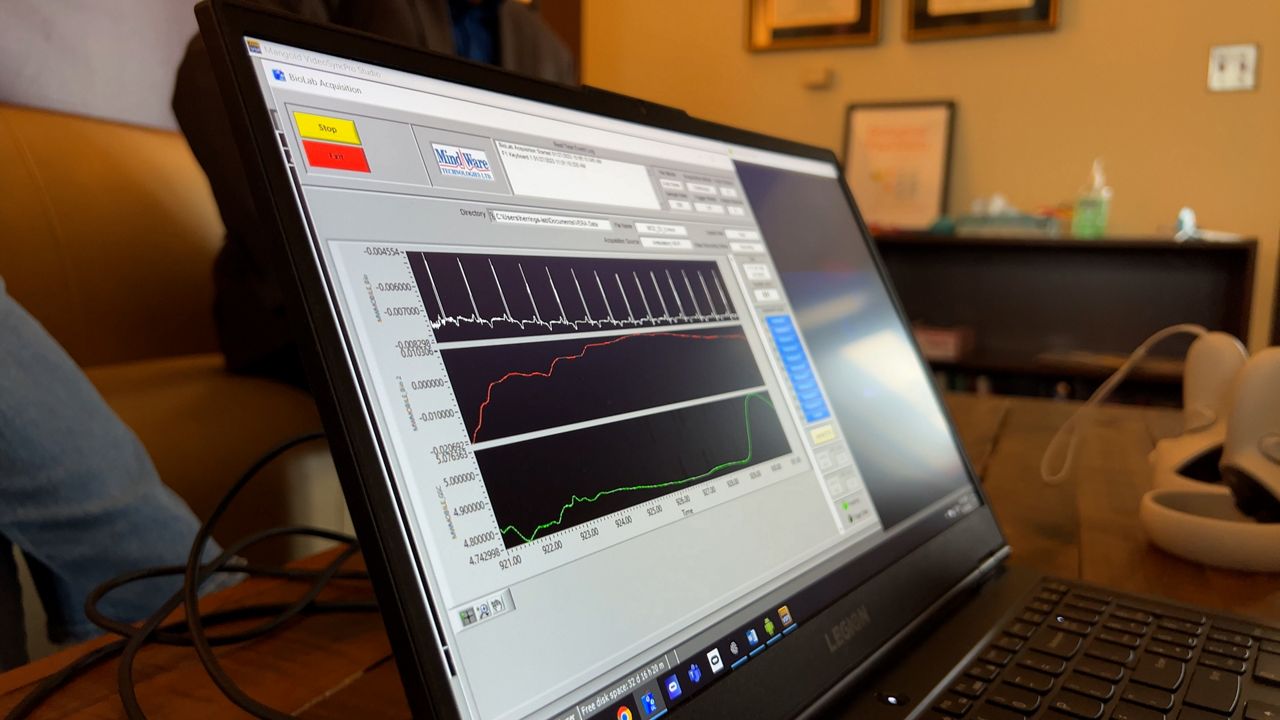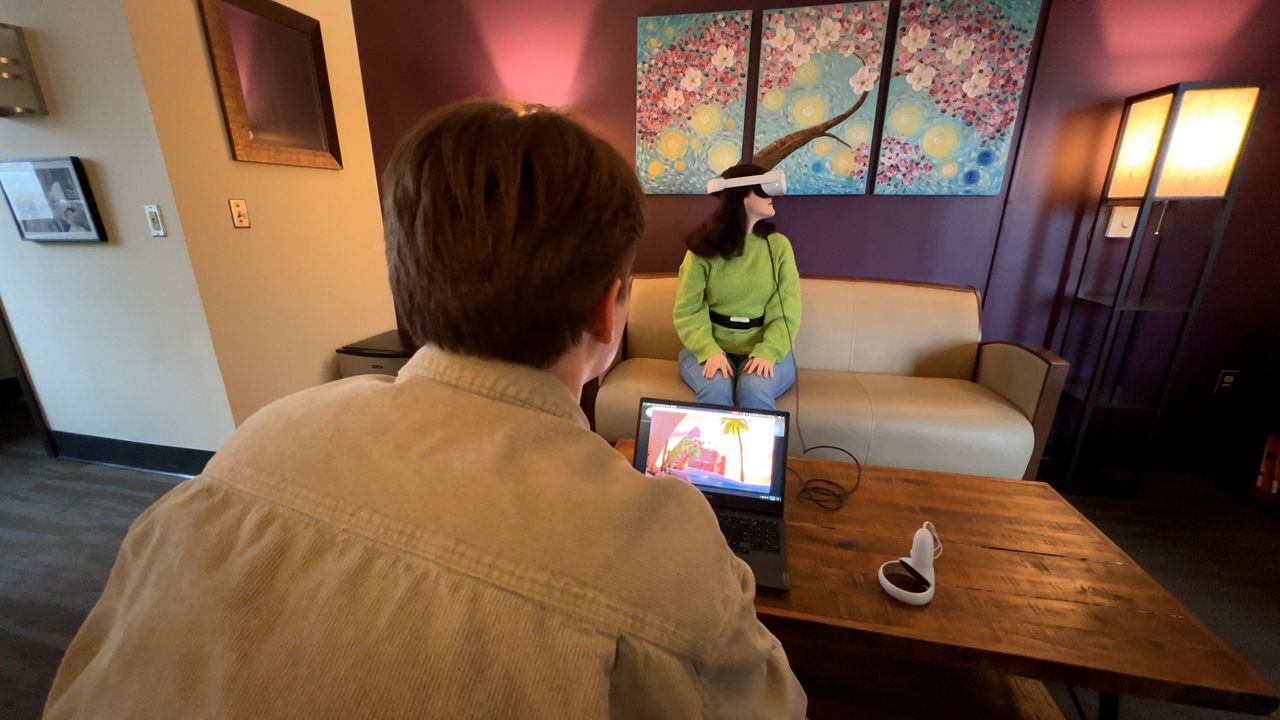MADISON, Wis. — People of all ages struggle with mental health, but sometimes, it can be hard to know how to manage life stressors.
Through the help of virtual reality, a group of University of Wisconsin researchers in the school’s department of psychiatry has teamed up with the Dane County Juvenile Detention Center. They’re helping children deal with their emotions in a more productive way.
Dr. Justin Russell, research scientist in the Building Resilience to Adversity and Violent Experiences (BRAVE) Research Center, leads the team.
Russell and his team of research specialists bring children to an entirely different three-dimensional world where they are required to use breathing techniques to survive and progress.
“Taking a deep breath can actually just help you calm down,” said Russell. “It seems so obvious to some of us but by training these kids who can be so dysregulated and have so many emotional problems, we believe we can really help them and that’s kind of what we are trying to monitor here.”
The game is called VERA, or Virtual Emotion Regulation in Adolescents, and it transports users to a vibrant underwater world.
Collin Schmit, UW research specialist, works directly with patients, studying their physiological systems like heart rate and respiration. He said so far, the VR experience has been beneficial for many of their patients.
“Over the course of about 15 minutes, they get into a nice rhythm, find themselves really calm,” said Schmit. “They talk about feeling really relaxed when they come out of the headset, and they didn’t know that their body could feel that way.”

According to the Wisconsin Office of Children’s Mental Health, 80% of violent youth offenders had an incarcerated household member.
On top of that, 64% of households living below the poverty line in Wisconsin are single-parent households.
These environments may cause trauma to children. That’s where the VR breathing training comes in.
Russell said biofeedback (electronic monitoring of bodily functions) is not a new concept and, ultimately, he said the idea of it is very boring.
But what is new is combining biofeedback with a video gaming experience.

“Something like 90% of kids play video games at least once a month and if we can meet them where they are, with treatments that we know work, I think it is going to be a huge advantage in mental health,” said Russell.
Russell said his team’s work is just beginning and the hope in the future is to monitor kids for longer periods of time to find out if their work is having any lasting impacts on Dane County’s youth.



